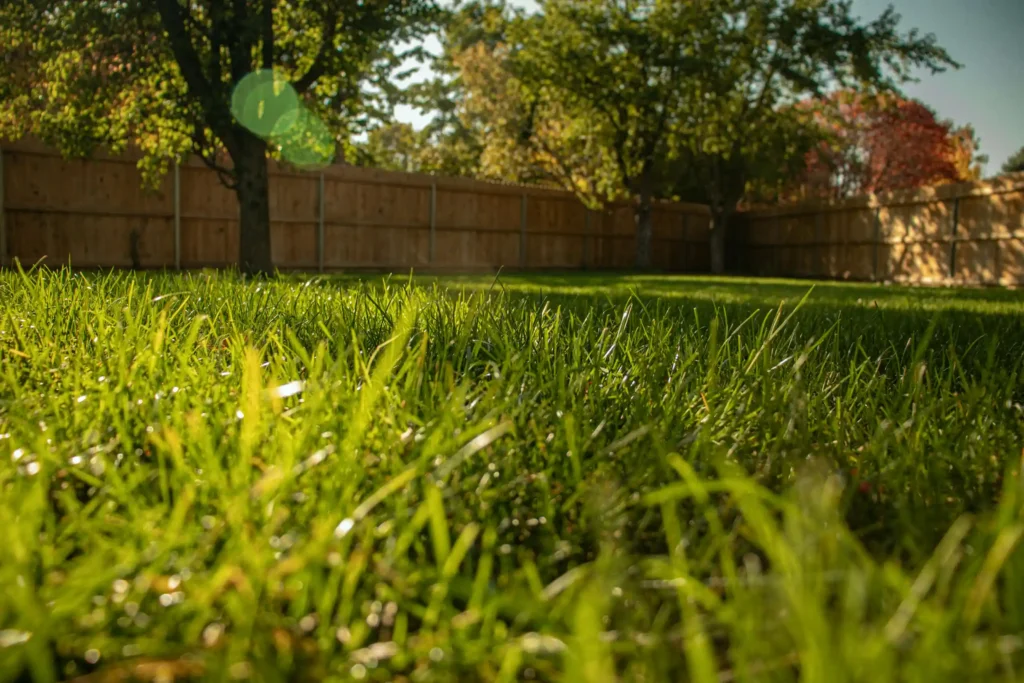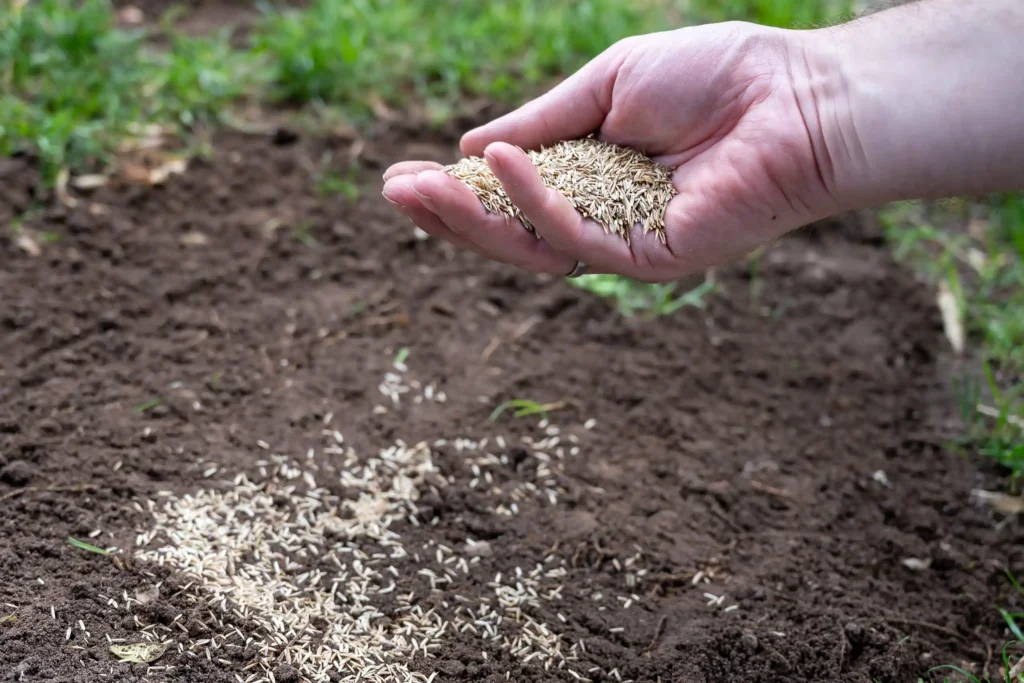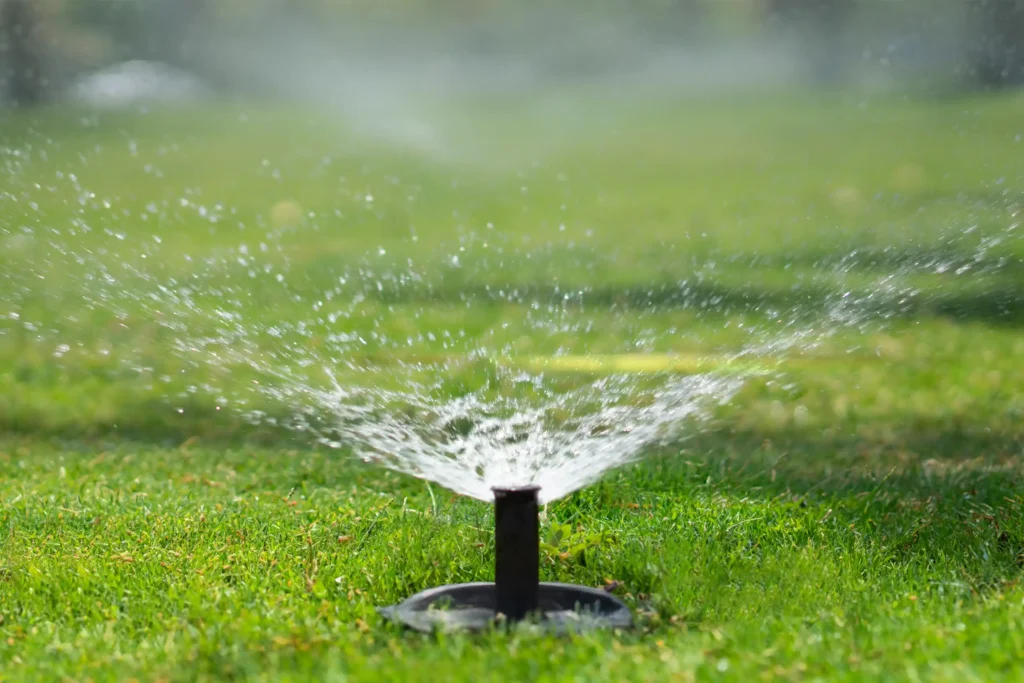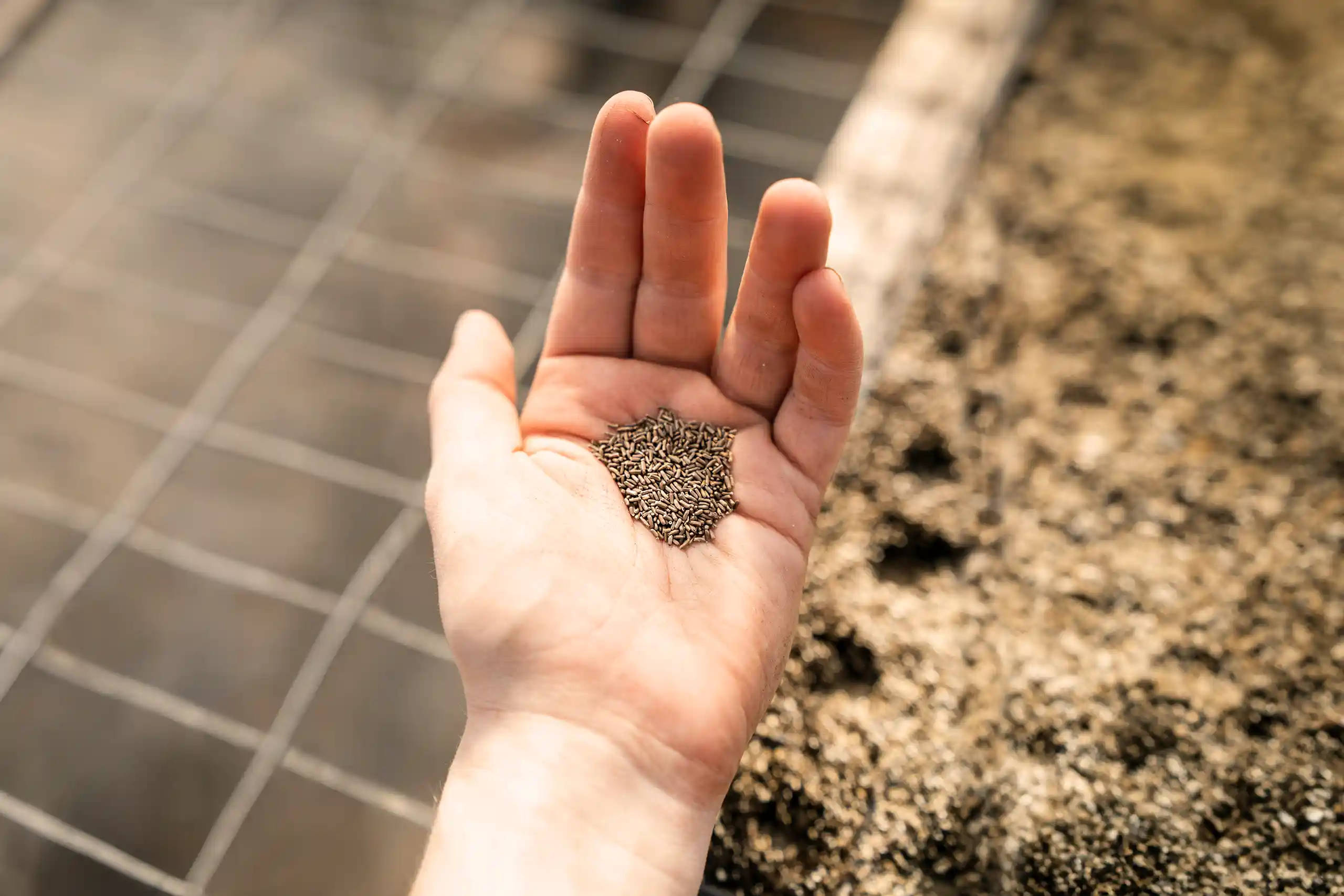Laying down new grass seed can be a rewarding experience, especially when it produces a vibrant and thick lawn.
However, birds tend to see your freshly sown lawn as their own personal buffet, eating the seeds before they have had a chance to grow.
Fortunately, there are effective ways you can protect your grass seeds so they can successfully germinate.
In this guide, we will explore why birds eat grass seeds, which types they tend to avoid, the best time to plant grass seeds so they are undisturbed, and practical tips to keep birds away.
Why do birds eat grass seed?
Birds are natural foragers and will search for food to feed themselves and their young.
Whether you are overseeding or planting a new lawn, fresh seed becomes an easy and plentiful food source for birds.
The most common culprits are sparrows, finches, blackbirds, pigeons, and starlings.
Although birds can be a nice addition to your garden, they can cause problems by consuming a significant portion of your seed before it has germinated.
If your seeds fail to germinate, your lawn may grow patchy, uneven, or not at all.
| Fast Facts Birds are more likely to eat grass seed when: – Seeds are exposed on the soil surface – There is a lack of natural food sources – The area is frequently visited by other foraging birds – There is no ground cover to protect the seeds |
What kind of grass seed do birds not eat?

No grass seed is completely bird-proof; however, some types are less appealing to birds.
These include:
- Tall Fescue
- Perennial Ryegrass
- Bermuda Grass
- Zoysia Grass
In addition, you may want to consider coated or treated seeds, which have an outer layer containing nutrients promoting germination and are designed to deter birds.
If you are looking for a way to stop birds from eating grass seed without the need for additional fencing or noise deterrents, then these types of grass seed can be a great alternative.
What month should I put grass seed down?

Now that you are aware of why birds eat grass seeds and which types they favour less, it is time to look at when you should plant your seeds.
Timing is everything when sowing grass seed, particularly if you want to prevent it from being eaten by birds.
The best months for planting grass seeds are:
| – Spring (March to May). Warmer temperatures and occasional rainfall keep the soil moist, helping seeds to germinate quickly – Autumn (September to October). The soil will still be warm from summer, and the cooler temperatures will reduce the stress on new grass |
Spring and autumn are the perfect times for sowing grass seed, as they provide the optimal conditions for germination.
The quicker seeds germinate, the less time birds have to eat them before they establish and sprout up as fresh grass.
In addition, birds will have more access to natural food sources in spring, so they will be less reliant on your new seeds, while many birds begin migrating in autumn, so there will be fewer species around.
How to keep birds from eating grass seed
We understand that it can be frustrating when trying to stop birds eating grass seed.
However, it is important to use bird-friendly deterrents that protect our seeds while keeping our feathered friends safe.
Here are some effective and non-harmful ways to prevent birds from eating grass seed.
1.Use netting or mesh
One of the most effective ways to keep birds away from your seeds is by using netting or a mesh cover.
Ideally, you will want to use a lightweight net or mesh to cover the seeded area to prevent birds from getting to the seeds.
Make sure to secure the edges, pinning them down to prevent birds from getting underneath and getting trapped.
In addition, ensure that the material you choose allows your seeds to be visible to light, which is essential for their growth and development.
Once your seeds have germinated and established, you can remove the material.
2. Add fake birds of prey
Another easy way to deter birds from feasting on your new seedlings is by placing decoy birds of prey in your garden.
Adding ornaments of kestrels, owls, and buzzards can trick birds into thinking that your garden has predators and scare them away.
You can buy these ornaments from most garden centres and use them all year round if you do not want birds in your garden.
However, if you do want to attract birds back, then you can use these ornaments as a temporary measure and remove them once your seeds have successfully germinated.
3. Set up a motion-activated sprinkler

A motion-activated sprinkler is a great way to deter birds while also keeping your lawn hydrated.
When birds approach to dine on your seeds, the sprinkler will detect their movement and spray a burst of water, scaring them away without harm.
In addition, using this method helps keep the soil moist, speeding up the germination process and reducing the time birds have to eat them.
4. Supply alternative food
A simple way to stop birds eating grass seed is to simply offer them an alternative.
Place bird feeders around your garden filled with our Birdseed Banquet Mix to attract birds away from the grass seed.
Our Birdseed Banquet Mix is packed with nutrients and is designed to appeal to various birds.
It includes bird favourites like sunflower hearts, black sunflower seeds, and red and white millet.
To ensure birds flock to your feeders or bird tables and not your grass seeds, you need to ensure any alternative food is placed in a safe and comfortable area.
Regularly top up your bird feeders so birds will know that food is regularly available in those designated areas and not on your lawn.
5. Use startling sounds
Birds are easily startled and prefer environments where they can dine comfortably without risk.
Adding items to your garden that create sounds can make them believe something dangerous or a potential predator is lurking.
Hanging wind chimes, pinwheels, or even tin cans from string are effective ways of creating sounds that will deter birds from your lawn.
You may have seen suggestions for playing a recording of a bird of prey in the morning and evening when birds are at their most active, which can also work.
However, it is not a great option for those living in densely populated areas, as you may annoy the neighbours!
Will tin foil stop birds eating grass seed?
Yes, tin foil can be highly effective when trying to stop birds eating grass seed.
Birds are naturally cautious of shiny, reflective objects, especially those that move.
One of the most practical ways to use foil to deter birds is by cutting strips of foil and attaching them to sticks around the seeded area.
Alternatively, you can also hang a long piece of string across your lawn, attaching it to fence posts or trees.
You can then twist strips of foil along the string, leaving them loose so they can flutter in the wind.
In addition, you can also use old CDs to create the same effect, as they will sway in the wind and cast reflective light across your lawn, which birds find off-putting.
Ready to protect your lawn?
It can be difficult to stop birds from eating your grass seeds, especially if you like having them in your garden.
By ensuring your seeds are properly covered, using bird-friendly deterrents, and planting at the right time, you can significantly reduce the chances of birds feasting on your newly planted seeds.
Set your lawn up for success and take our quiz today to be paired with your perfect product bundle, tailored to your lawn’s needs.
